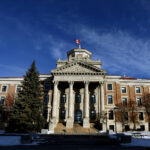The summer recess has barely begun, but for Canada’s newest crop of parliamentarians, the real work is just heating up – quite literally – on the barbecue circuit across the country.
“I’ve gone through three bottles of sunscreen already,” laughs Mariam Chaudhry, the newly-elected Liberal MP for Brampton East, as she flips hamburgers at her third community event this week. “Parliament was intense, but nothing prepared me for how physically demanding these summer events would be.”
For the 47 first-time MPs elected in last fall’s federal election, this marks their inaugural summer constituency circuit – a grueling but essential Canadian political tradition where politicians return to their ridings to connect with voters between parliamentary sessions.
The stakes feel particularly high this season. With Prime Minister Trudeau’s minority government navigating choppy approval ratings and the Conservative opposition gaining momentum in recent polls, every handshake and conversation at these local events carries political weight.
“These aren’t just social gatherings,” explains Nelson Wiseman, professor emeritus of political science at the University of Toronto. “The barbecue circuit is where MPs gather intelligence about local concerns, test-drive new policy ideas, and frankly, where they either cement or lose voter loyalty before the next election cycle.”
The art of summer constituency work strikes a delicate balance. MPs must appear relaxed and accessible while simultaneously absorbing community feedback and defending government positions – all while avoiding mustard stains on their campaign-ready attire.
For Jean-Michel Tremblay, the NDP representative from Jonquière who defeated a longtime Bloc Québécois incumbent last October, the learning curve has been steep.
“In Parliament, everything is scheduled to the minute. Out here, you might spend 45 minutes talking to someone about their EI benefits while your next event is starting without you,” Tremblay says, checking his watch before racing to his car. “But these conversations matter more than anything I’ll say in the House.”
The summer circuit highlights the regional diversity of Canadian politics. While urban MPs might attend multicultural festivals and pride parades, their rural counterparts often find themselves judging agricultural fairs and attending small-town parades.
Conservative MP Hannah Wilson from rural Saskatchewan has already attended 14 agricultural events in the past three weeks. “People here want to talk about grain prices and transportation costs, not the latest Twitter controversy,” Wilson notes while touring a canola farm. “My job is bringing their practical concerns back to Ottawa in the fall.”
A recent Abacus Data poll suggests these interactions matter significantly, with 64 percent of Canadians saying personal contact with their MP influences their voting decisions more than party platforms or leadership.
The political calculations behind these summer appearances aren’t lost on party strategists. Internal party memos, obtained through access to information requests, reveal detailed guidance for MPs on messaging and “strategic visibility” during the recess.
“We’re tracking regional issues that could become national flashpoints,” acknowledges a senior Liberal Party strategist who requested anonymity to discuss internal strategy. “MPs are our early warning system, especially the new ones who haven’t developed filters yet.”
For rookie Green Party MP Devin Williams from Victoria, the summer circuit offers a chance to escape partisan tensions. “In Ottawa, everything feels adversarial. Back home, I’m working with municipal officials from all political stripes on practical problems like housing affordability and coastal protection,” Williams explains while helping community volunteers clean a local beach.
The physical demands of the circuit are substantial. Blake Johnson, the Conservative MP for a sprawling rural Alberta riding, will log over 4,000 kilometers on his pickup truck this summer. “My constituency is larger than some European countries. Some days I’ll hit three pancake breakfasts before noon,” Johnson says.
Constituency staff bear much of the logistical burden. “I’ve become part event planner, part therapist, and part GPS navigator,” laughs Mei Lin, who coordinates scheduling for a Toronto-area MP. “Our office gets invitation overload – everyone wants their member of Parliament at their event.”
Parliamentary experts note that constituency work has intensified in recent decades. “What used to be a quiet summer has transformed into non-stop engagement,” observes Penny Collenette, former national director of the Liberal Party. “Social media has created expectations of constant accessibility, which changes the dynamic completely.”
For the MPs themselves, summer events also provide rare opportunities for cross-party collegiality. At a recent multicultural festival in Mississauga, MPs from three different parties shared a communal table, comparing notes on committee work between photo opportunities.
“In Ottawa, we’re opponents. In the riding, we’re just tired politicians comparing blisters from walking in parades,” says Bloc Québécois MP Claude Therrien.
As Parliament resumes in September, these summer interactions will shape policy priorities and political strategies. The barbecue circuit, with its combination of politics and personal connection, remains a uniquely Canadian political tradition – one that each new generation of parliamentarians must master.
“You learn more about Canada from a hundred riding conversations than from a thousand pages of briefing notes,” reflects Chaudhry, checking her schedule for tomorrow’s community breakfast. “Now if you’ll excuse me, I need to find more sunscreen.”






